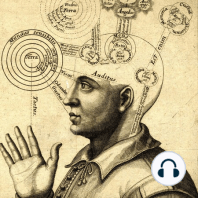72 min listen

Podcast for Social Research, Episode 35: Capitalism’s Hidden Crises
Podcast for Social Research, Episode 35: Capitalism’s Hidden Crises
ratings:
Length:
77 minutes
Released:
Nov 9, 2019
Format:
Podcast episode
Description
American capitalism is frequently contrasted with its European other—namely, the social democratic model that seems, to American eyes, more equitable and less crisis-prone. Yet, according to sociologist Oliver Nachtwey, all is not well in social-democratic Germany, Europe’s largest economy, where stagnant social mobility has led to social fragmentation and a revived nationalist right-wing. In the 35th episode of the Podcast for Social Research, Nachtwey joins BISR faculty Ajay Singh Chaudhary for an extended discussion of contemporary capitalism, social democracy, the neoliberal turn, the rise of the right, and alternatives to the status quo. What, if anything, differentiates Western European capitalism from its American variant—and why, if it was once in some sense more equitable, are Western European societies and institutions currently in crisis? How did neoliberalism make itself felt in Germany? What remains of the social democratic compact? Can Western Europe be re-stabilized—and under what conditions?
Released:
Nov 9, 2019
Format:
Podcast episode
Titles in the series (99)
Podcast for Social Research, Episode 33: Ecology, Community, Prosperity: a Conversation with Eliza Griswold: What is the price of fracking? In the 33rd episode of the Podcast for Social Research, Eliza Griswold, author of the Pulitzer Prize-winning Amity and Prosperity: One Family and the Fracturing of America, joins BISR's Ajay Singh Chaudhary for a... by The Podcast for Social Research